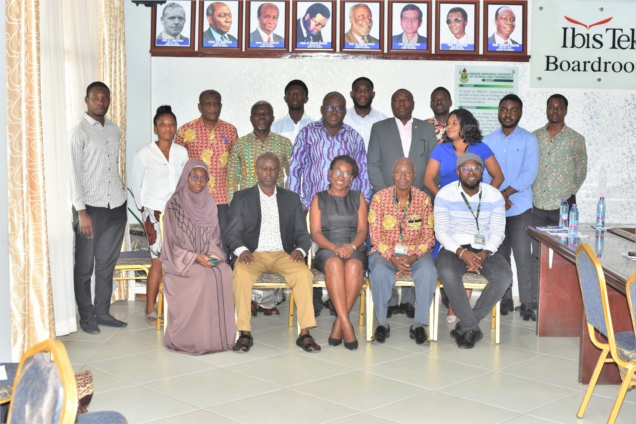Getting water from the ground is capital intensive and laborious.
Climate change has also worsened the reliability of these groundwater systems.
The Kwame Nkrumah University of Science and Technology (KNUST), is therefore employing artificial intelligence to predict water availability in the ground.
The project is dubbed Rapid Assessment of Groundwater Availability (RAGA).
According to the Principal investigator, Dr. Cyril Boateng of the Department of Physics, the project will build an AI-based system for groundwater which can be accessed by the public through their smartphones and computers.
“We seek to develop an innovative web-based artificial intelligence driven open-source framework to predict groundwater availability in Ghana.
“We intend to achieve this aim by building a database of spatio-temporal hydrogeological, and climate variables; developing AI algorithms and workflows for integration of varied data sources and prediction of groundwater availability and developing an open-source web-based application for rapid groundwater availability assessment to be used by stakeholders and the general populace,” he explained.
Partners in the 1-year project include, Departments of Physics, Meteorology and Climate Science, Computer Science and Geological Engineering of KNUST. Also involved are the Water Resources Commission and the CSIR-Water Research Institute.
Provost of the College of Science, Prof. Leonard Amekudzi is happy the project will build the profile of early-career researchers and foster research collaboration.
“The project is seeing the College of Science collaborating with the College of Engineering, CSIR among others. The project team is mainly made up of early-career researchers and it’ll therefore build their capacities,” he said.
Prof. Amekudzi added: “The project will contribute to KNUST’s agenda of carrying out impactful research since water accessibility has become critical in the face of the illegal mining menace.”
The project is part of the Responsible Artificial Intelligence Network for Climate Action in Africa (RAINCA) Hub.
The hub is funded by the Canadian International Development Center (IDRC) through three institutions, namely the West African Science Service Center on Climate Change and Adapted Land Use (WASCAL), the Regional Universities Forum for Capacity Building in Agriculture (RUFORUM), and AKADEMIYA2063.
Latest Stories
-
Paris 2024: Opening ceremony showcases grandiose celebration of French culture and diversity
3 hours -
How decline of Indian vultures led to 500,000 human deaths
4 hours -
Paris 2024: Ghana rocks ‘fabulous fugu’ at olympics opening ceremony
4 hours -
Trust Hospital faces financial strain with rising debt levels – Auditor-General’s report
4 hours -
Electrochem lease: Allocate portions of land to Songor people – Resident demand
5 hours -
82 widows receive financial aid from Chayil Foundation
5 hours -
The silent struggles: Female journalists grapple with Ghana’s high cost of living
5 hours -
BoG yet to make any payment to Service Ghana Auto Group
5 hours -
‘Crushed Young’: The Multimedia Group, JL Properties surprise accident victim’s family with fully-furnished apartment
6 hours -
Asante Kotoko needs structure that would outlive any administration – Opoku Nti
6 hours -
JoyNews exposé on Customs officials demanding bribes airs on July 29
7 hours -
JoyNews Impact Maker Awardee ships first consignment of honey from Kwahu Afram Plains
8 hours -
Joint committee under fire over report on salt mining lease granted Electrochem
8 hours -
Life Lounge with Edem Knight-Tay: Don’t be beaten the third time
8 hours -
Pro-NPP group launched to help ‘Break the 8’
8 hours

